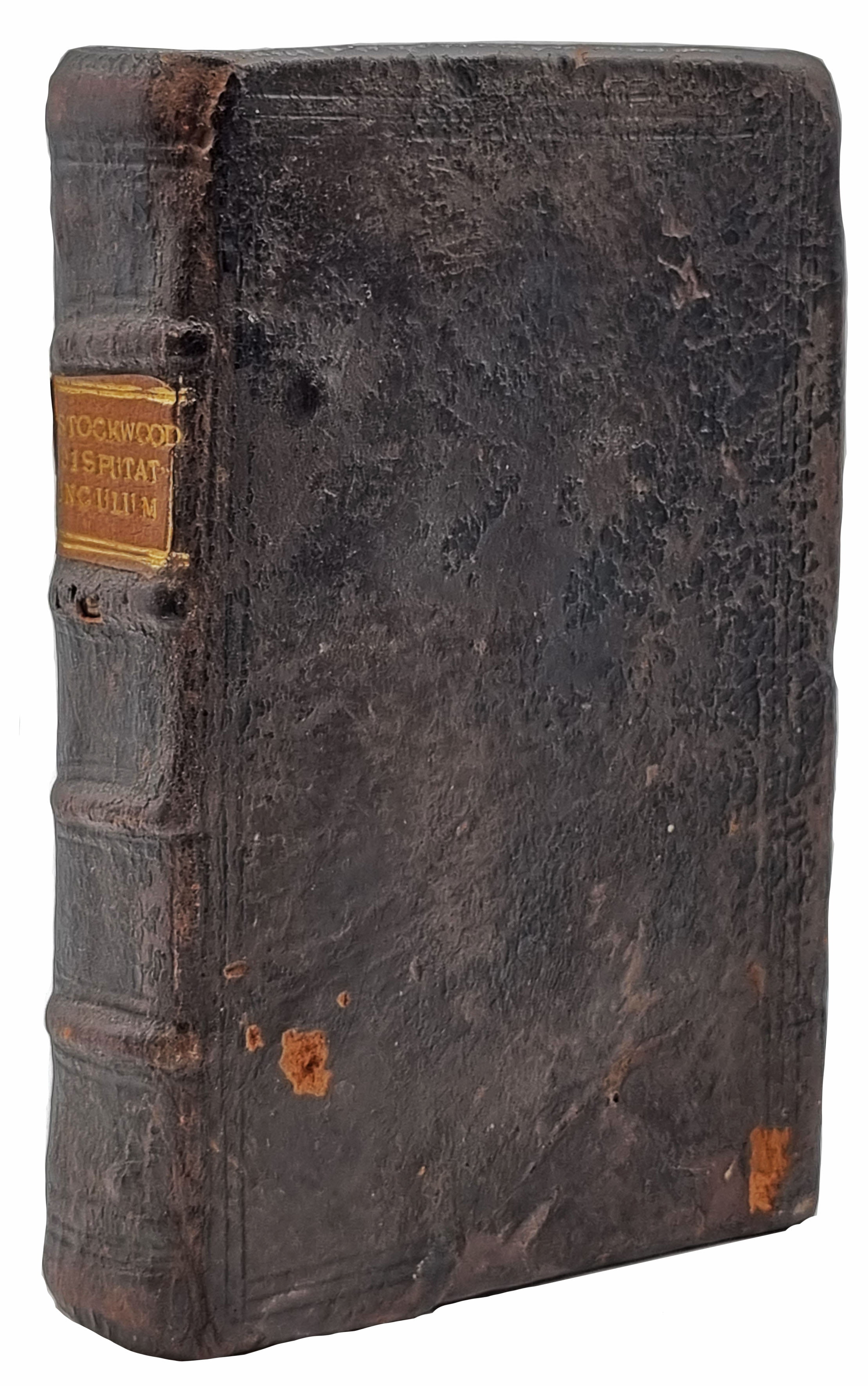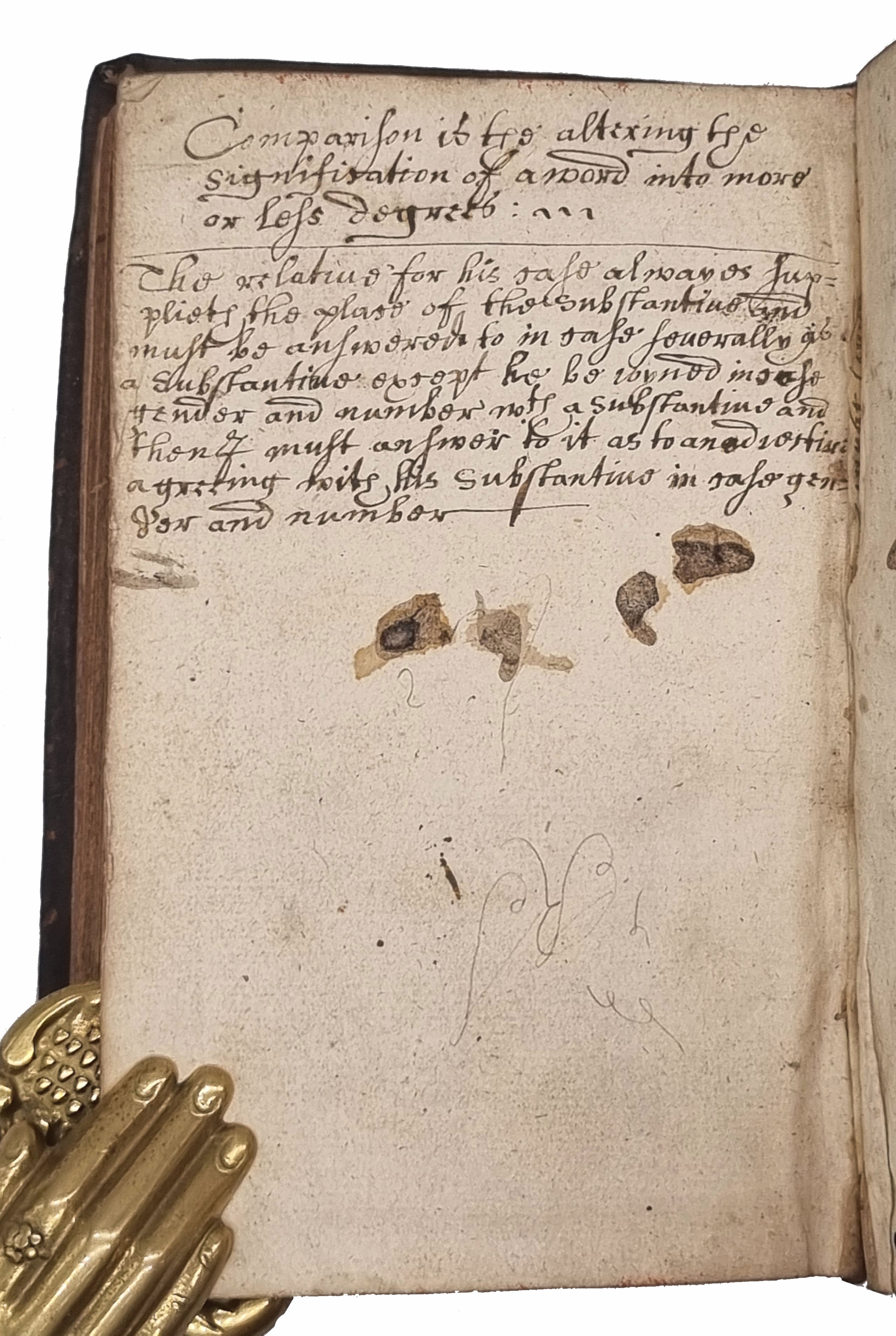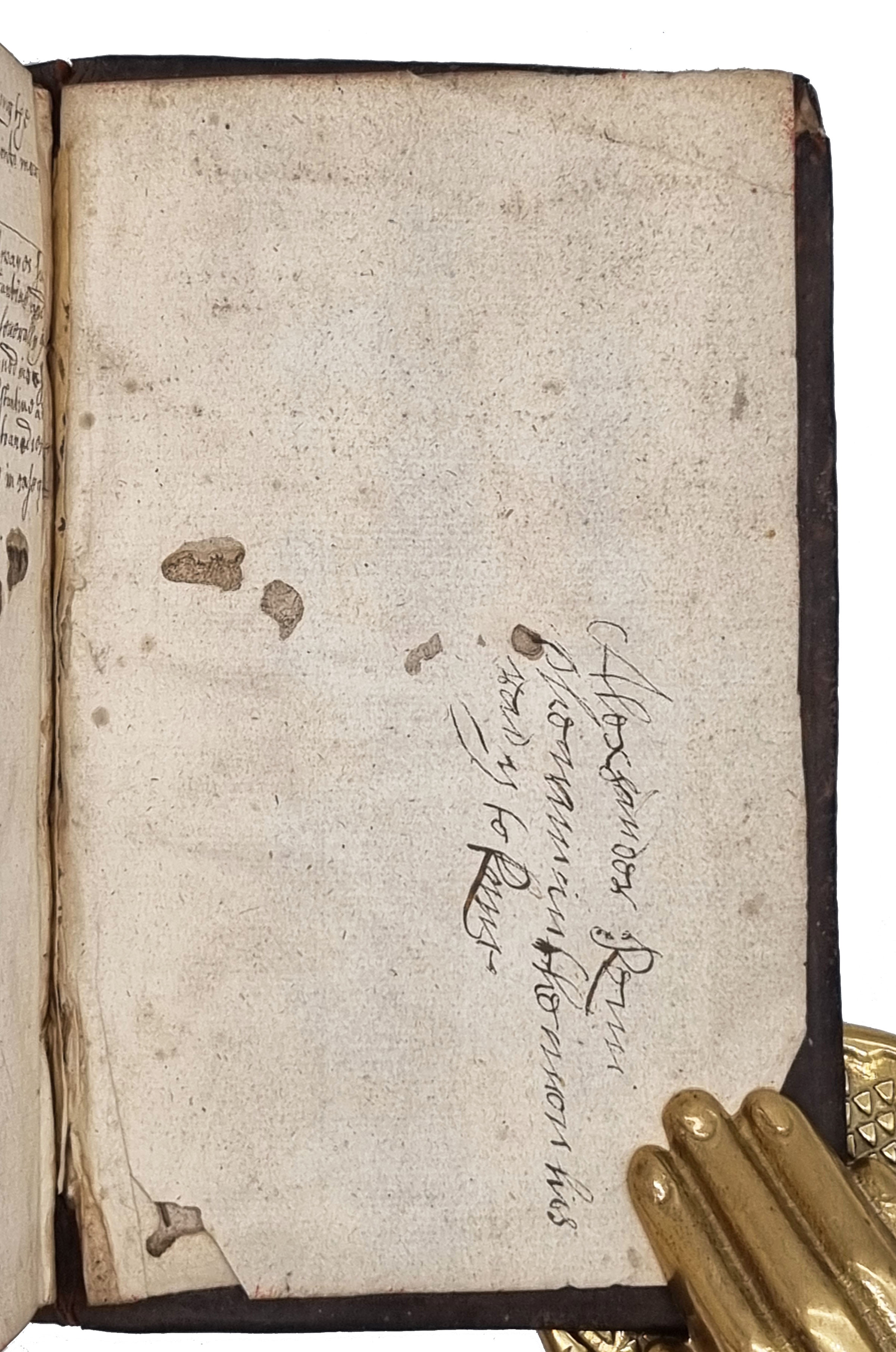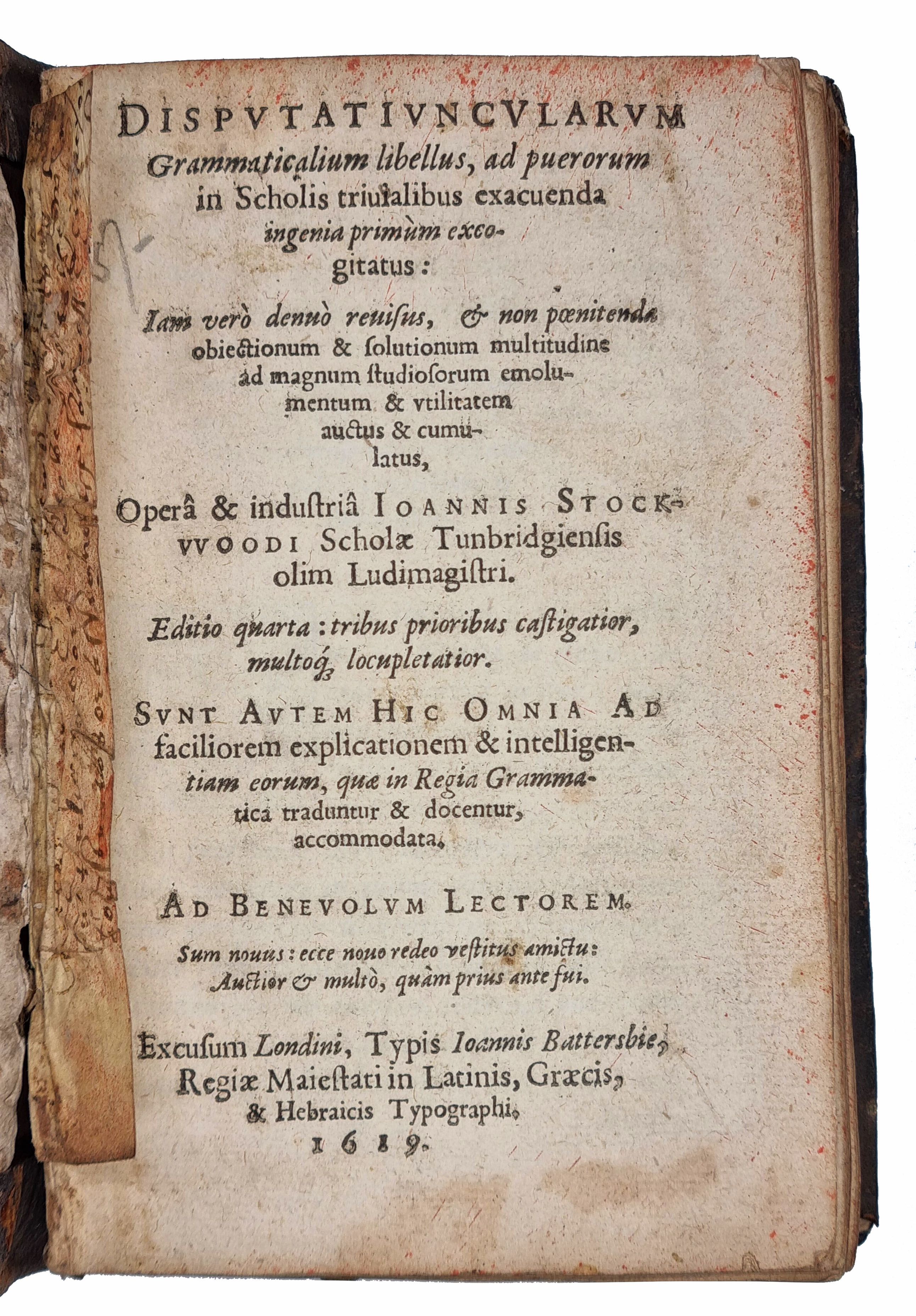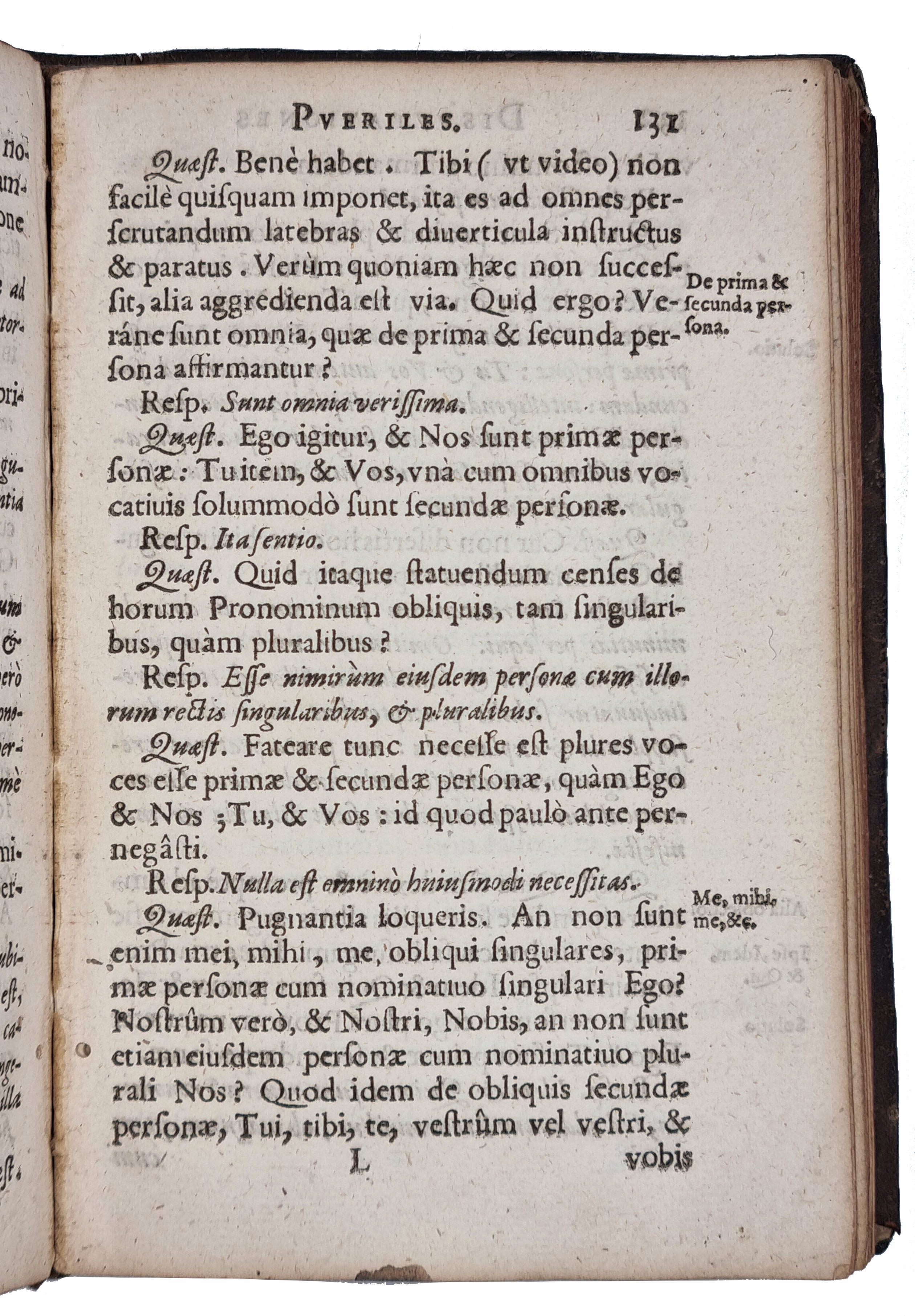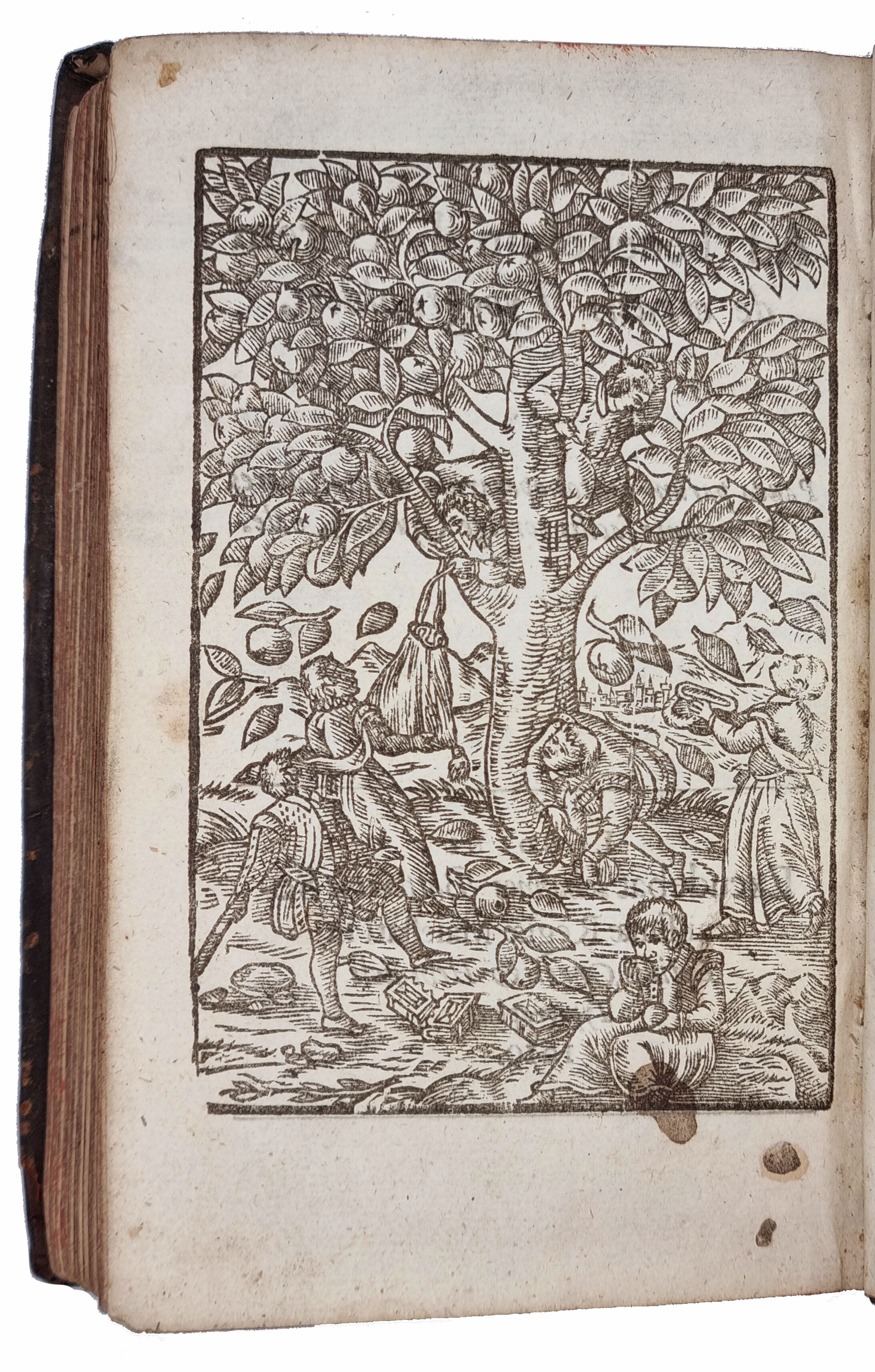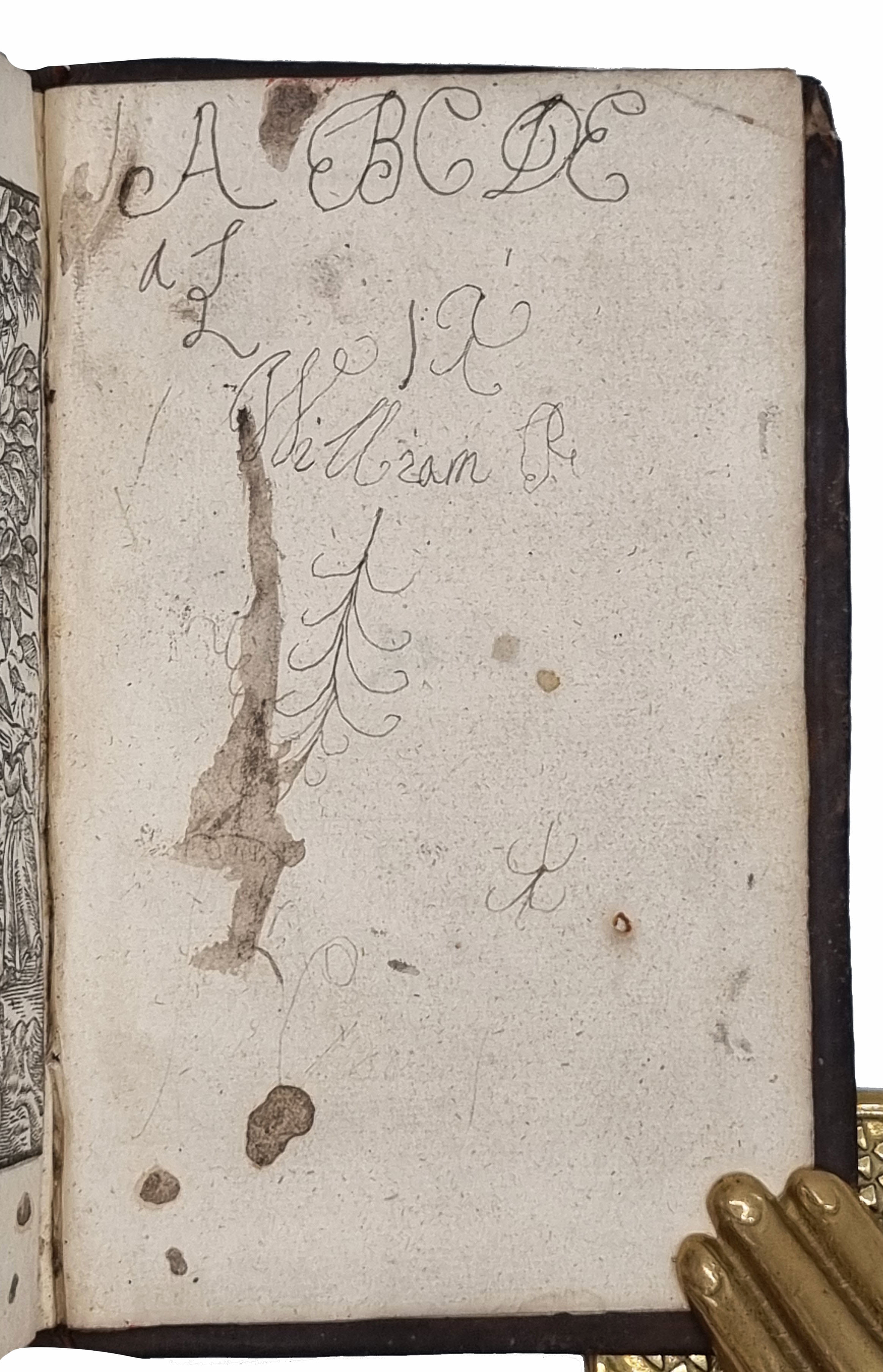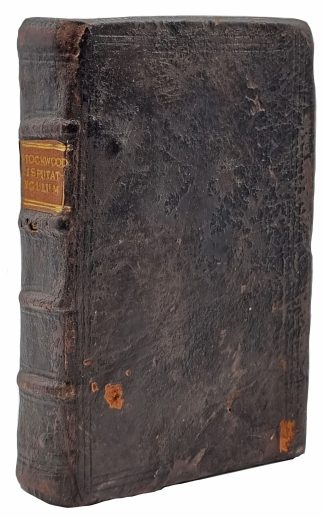STOCKWOOD, John
NOT RECORDED IN THE US
Disputatiuncularum grammaticalium libellus, ad puerorum in scholis triuialibus exacuenda ingenis primu excogitatus
London, [T. Dawson], typis Ioannis Battersbie, Regiæ Maieststi in Latinis, Græcis, & Hebraicis typographi, 1619£2,400.00
8vo. pp [xxx], 358, [civ]. A-2H8. [last two ll. blank] Roman and Italic letter, some Greek. Floriated woodcut initials and head-pieces, fine full page woodcut of children picking fruit on verso of last., contemporary manuscript, inscriptions at end, a few ink trails. Light age yellowing, title a little dusty, tiny single worms holes and trails at blank gutter, cut a little close at fore-edge, just shaving a few side-notes. A very good copy, crisp and clean in contemporary calf, covers bordered with a triple blind rule, spine with raised bands blind ruled in compartments, later morocco label gilt, stubs from an early mss leaf, a little rubbed, upper cover repaired at lower edge, a.e.r.
Rare fourth edition of this important and influential Latin grammar, first published in 1598, all editions of which have survived in a few copies only. ESTC records seven copies only of this edition, with none in the US. John Stockwood “school-master and divine, was a pensioner of St. John’s College, Cambridge, when Queen Elizabeth visited that university in August 1564, being matriculated on 4 Oct. in that year, and admitted a scholar on the Lady Margaret’s foundation on 10 Nov. following. He graduated B.A. in the university of Heidelberg in 1567, and was incorporated in that degree at Oxford on 19 May 1575, when he stated that he was about to open a ‘Indus literarius’ at Cambridge. .. In 1571 he occurs as minister of Battle, Sussex. In or before 1578 he was appointed headmaster of the free grammar school at Tunbridge, Kent, by the Skinners’ Company of London.… He was a celebrated and powerful preacher, and obtained the vicarage of Tunbridge, Kent, in 1585 At one period he was in great poverty. The records of the corporation of Gravesend show that on 30 Aug. 1594 he received a contribution of forty shillings out of the stock of the chamber of that town, in compliance with a written request from Sir Robert Sidney. He had ceased to be master of Tunbridge school in 1597, when his ‘Progymnasma Scholasticum’ was published. In the dedication of that work to the Earl of Essex he acknowledges the kindness of that nobleman in relieving his poverty and protecting him from malevolent antagonists. It is believed that he retained the vicarage of Tunbridge till his death. He was buried there on 27 July 1610.” DNB.
“With regard to text-books, many of the books on Rhetoric give examples of the Disputational Method. For Grammar a book which was much used in England is John Stockwood’s Grammatical disputations. This was a well known book, and represents for the first half of the 17th century a mode of school activity which has passed away, for which we have not, apparently, elsewhere than in Stockwood, any outstanding document. … the most important consideration in reference to Stockwood’s book is rather the mental discipline involved in the the method than the subjects discussed. If a right method of discussion is practised, his argument is that such a method, employed first on material with which the pupil is familiar, viz., Grammar, can be applied to other subjects of discussion of literary or culture-material. … Stockwell himself points out the aim of the method as an effort to sharpen the wits of boys in the trivial schools. It is the old method of dialectic transferred to the material of Grammar, which had become the sine qua non of Renaissance studies. A special merit of the method was the spirit of research at first-hand amongst the classical writers for illustration of grammatical uses and standards. With Stockwood, the classical authors were to Grammar what modern maps are to the geographer. .. Stockwood endeavours that the pupil shall map out, at least by confirmation, the usages of the most approved classical authors. It is true he supplies the pupil with a great number of these. But he also supplies models whereby the the pupil enterprising in Disputation shall be on the look-out for himself – supplying himself with material against his opponent.” Foster Watson ‘The English Grammar Schools to 1660: Their Curriculum and Practice.’
ESTC S114853. (BL, Cambridge (2 copies), Oxford (3 copies), Wells Cathedral) STC 23279.In stock


